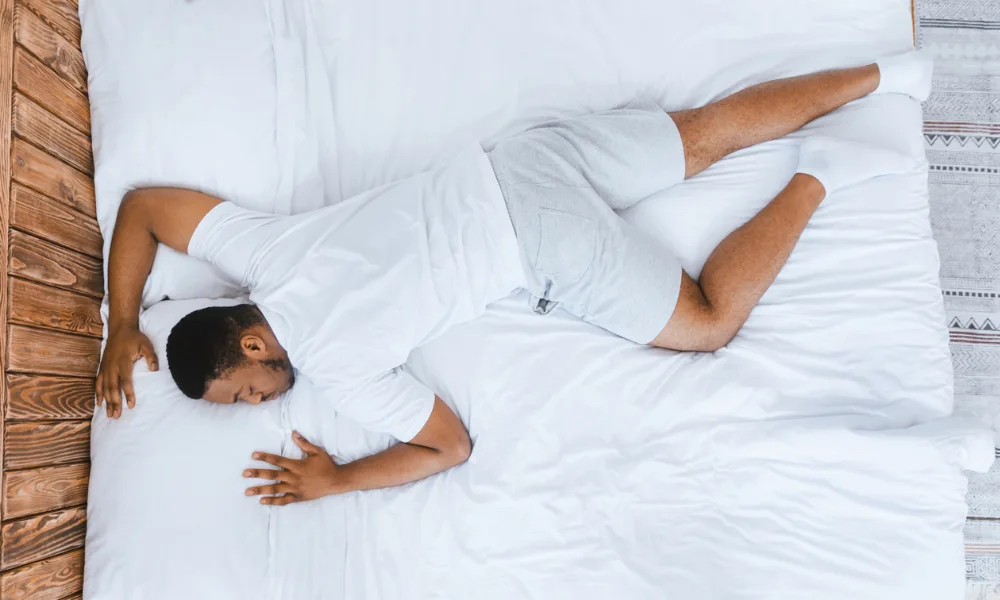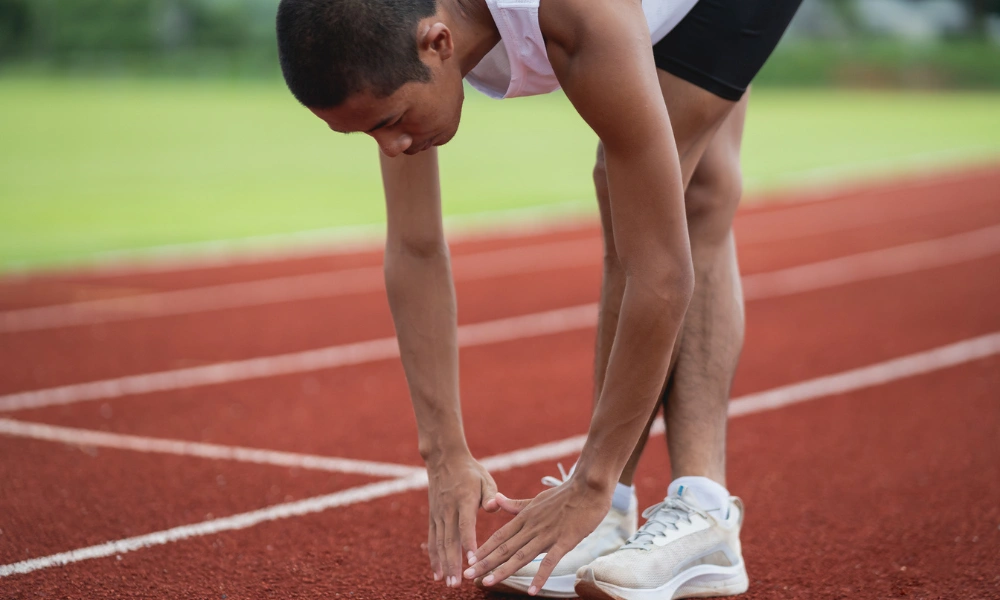How Sleep Can Make You a Faster Runner
Many runners admire those who fight fatigue to get out of bed and complete a run. That said, someone who wakes up tired and decides to sleep in instead of working out is often considered a slacker. Modern society views sleep as a luxury.
A lot of people think that admitting a need for sleep shows weakness,” says Dr. John Caldwell, a psychologist who has studied sleep deprivation and fatigue at NASA. – A true athlete must have stamina and endure whatever life throws. Part of that endurance is not needing sleep.
If you put it that way, the world’s best marathon runners are complete lazybones. Post-run sleep is a key detail of the training day of elite Kenyans. American 2:04 marathoner Ryan Hall marks sleep on his calendar as “business meetings.”
At the same time, Paula Radcliffe’s world domination was ensured by 10 hours of sleep a night, supplemented by a two-hour afternoon nap. They appreciate what science increasingly confirms: sleep revitalizes your body after hard workouts and makes you a better runner.
Indeed, recent research shows that even one night of poor rest can hurt athletic performance. Moreover, chronic sleep deprivation negatively affects running and health, even for one hour each night.
Sleep is just as important as training,” says running coach Joe English. – When you start sacrificing sleep for other things, the quality of your workouts – and everything else – starts to deteriorate.
Are You Sleeping Enough to Improve Your Running?

No test can determine exactly how many hours of sleep you need, but the average adult needs seven to nine hours a night, according to Dr. Matthew Edlund, author of The Power of Rest(HarperOne). Unsurprisingly, running exercise affects sleep needs, but it’s not a simple “more is more” equation.
Research links moderate exercise to better and more efficient sleep, possibly by increasing levels of the sleep-promoting compound adenosine. Therefore, people who run moderate mileage require less sleep than those who don’t run at all.
However, sleep needs may change during a strenuous training cycle, says Cheri Mach, a sleep researcher at Stanford University. Although there’s no clear table for the ratio of mileage to required hours of sleep, your body is signaling a lack of rest.
You’re probably not getting enough restful sleep if you fall asleep instantly, doze off in meetings, depend on caffeine, or wake up more than once a night. “If your body is demanding sleep after a full night of rest, you’re probably undersleeping,” says Dr. Robert Oxman, a runner and director of the Sleep to Live Institute in North Carolina.
Sleep Deprivation and Running: The Hidden Danger to Your Health and Performance
Regular lack of or interrupted sleep triggers a cascade of hormonal changes with serious consequences for the body. Within a couple of weeks, your levels of the inflammatory marker C-reactive protein and the stress hormone cortisol rise. As a result, your heart starts beating more frequently, and your nervous system is constantly under stress.
How to run faster and sleep better. Growth hormone, responsible for muscle and bone repair, is produced by the pituitary gland during deep sleep, explains Shelby Harris, director of the sleep behavioral medicine program at Montefiore (N.Y). Medical Center. The less sleep you get, the lower your levels of this hormone. It also decreases your muscles’ ability to store glycogen for energy – you risk “running out of fuel” no matter how many carbohydrates you consume. Studies show that a lack of sleep increases the risk of injury.
Dr. Edlund notes that sleep plays an important role in memory consolidation. Running is a complex learning process: during training, the brain receives information about the environment, the coordination of muscles and nerves for each step, and the body’s position in space (proprioception). During sleep, this information is processed, synthesized, and systematized. In sleep deprivation, the brain areas associated with memory cannot store the necessary data.
Lack of sleep causes fatigue and makes you irritable, sore, and more prone to injury. While there’s no universal number of hours of sleep that protects against running problems, everyone’s needs are different, says Dr. Edlund. But the more nights you’re sleep-deprived, the more serious the consequences for running and overall health can be.
Lack of sleep disrupts hunger hormones: ghrelin, which triggers appetite, rises, and leptin, which is responsible for feelings of satiety, Harris explains. This can lead to weight gain. In addition, sleep deprivation weakens the immune system, negatively affects mood, and increases the risk of developing chronic diseases, including type 2 diabetes.
How Much Sleep Do Runners Need? Disproving Common Myths
Insomnia before important races is a common occurrence for runners. They are reassured by the well-known wisdom: “It’s not the sleep the night before the race that counts, but the night before it.” The experience of athletes bears this out. According to Paula Schnurr, a participant in the 1500-meter race at the 1996 Olympics, no one sleeps much before the Olympics start. Beginning marathon runners are often poorly rested, too, but many perform well due to excitement and adrenaline.
Research partially supports this theory. Even after a sleepless night, people can perform well in cycling, weightlifting, or running. However, they note that each effort is increasingly difficult for them. “A successful run requires a mindset of maximum effort,” says Caldwell. Lack of sleep doesn’t usually affect physical performance, but it does reduce the willingness to work to the limit.
In a normal workout without a competitive spirit, lack of sleep can decrease the intensity. As a result, the body doesn’t get enough stimulus to develop, notes English. In addition, neurologist Lev Greenman warns that the deterioration of cognitive function and reaction speed increases the risk of injury.
Dr. Sean Youngstedt of the University of South Carolina advises that if you sleep under six hours, sleeping longer is better than forcing yourself to run. While you can recover after one or two bad nights, prolonged sleep deprivation seriously affects performance.
Mach’s study showed improved performance in athletes after 5-7 weeks of 10 hours of sleep. While this regimen is unavailable to everyone, it is important to determine your optimal sleep duration—for some, it is 7 hours, and for others, it is 8 hours.
Harris recommends determining the ideal vacation routine: sleep without an alarm clock and record sleep and wake-up times. By the fourth day, regular routines are restored; the average sleep time from the fourth to seventh night will show the body’s actual needs.
Mach advises runners to practice “sleep loading”-increasing sleep time one to two weeks before intense training. An extra half hour of sleep each night will help you start a new program fresh and strong. “It’s less time than checking email,” says Mach. – And you may feel so good about yourself that you make going to bed early a regular habit.”
Striking the Right Balance: Sleep and Running
Experts recommend tracking your sleep as carefully as you track your kilometers. Modern fitness trackers (like Fitbit) allow you to monitor your daytime activity and the quality of your night’s rest, providing detailed statistics via mobile apps.
“If you’re meticulously recording your 40 miles per week, try being just as diligent about keeping track of your sleep hours,” advises English. “It will greatly improve the effectiveness of your workouts.”
Keeping a sleep diary can help you spot signs of overtraining in time. A study published in Medicine & Science in Sports & Exercise found that overtrained athletes often suffer from sleep disturbances. According to Dr. Yann LeMere, sleep problems can signal the need to reduce training intensity or increase recovery time.
Sleep monitoring can also help you assess how well your fitness goals fit your lifestyle. Harris notes that at certain times (e.g., after a child’s birth), it’s worth being realistic about your expectations and temporarily reducing your workload. When setting ambitious goals, it’s important to plan for a period when you can provide the necessary time for training and recovery.
With a record of 2:04, Marathoner Ryan Hall says, “Without proper recovery, training is meaningless.” So take as much pride in quality sleep as you do in the kilometers you run.
Wrapping Up
Quality sleep is not a luxury but an essential tool in every runner’s arsenal. It directly impacts recovery and overall health. Remember: a properly organized sleep routine can be your secret weapon in achieving new running goals.
Invest time in your rest today to run faster tomorrow. Your body will thank you, and our stopwatch will show you the results!




